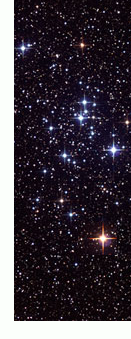
A kind of Stoic Deism, brought to Imperial Space by a minority among the New Terraformers. Timonians believe in God as creator of the universe and inspirer of souls. They do not believe that He intervenes except by inspiration, hence they do pray, but only in thanks and for forgiveness and guidance, not for providential (and never for miraculous) intervention. They believe in an afterlife, generally supposed to be heavenly for the good and purgatorial for the bad, but without much detailed definition.
They have a calendar of saints, often thought to hear prayers and guide, headed by St. Timon, the (almost certainly eponymous) namesake of the religion. (He probably originated as a generalized or allegorical "noble man," similar to the Confucian "gentleman." His being allegorical does not bother Timonians influenced by Ideolatry; they regard him as an archetype of holiness.) The other two major saints are St. Ariet the Founder, who started the religion, and St. Reth, who wrote down the Founder's teachings in their Analects, center of their canon.
The Anelects of St. Timon is a collection of sermons and parables in the form of letters to various groups and individuals, similar to the forms found in the Christian New Testament. There are no visions, legends, poems, or prophecies. However, these genres occur in other Timonian works with varying ranges of acceptance.
Their ethical system centers on duty, courage, and honesty; it is a little scant on mercy and suceptible to the pitfalls of other systems based on personal honor, such as chivalry and bushido.
Their ceremonial system includes a liturgy and the concept of "cleanness," and is suceptible to becoming a stay-clean game. One becomes unclean by:
eating blood
getting drunk or (recreationally) drugged
getting addicted
deliberately skipping fasts
deliberately skipping Assemblies
Assemblies are the commonest liturgies, held every ten days. Observant Timonians do not skip more than one in a row. Other liturgies are Initiation (equivalent to confirmation or bar mitzvah), Penance, Cleansing, and Edification. These are often held together with Assemblies, but elaborate (or embarassing) Penances and Cleansings are usually done separately and alone (or with a selected witness).